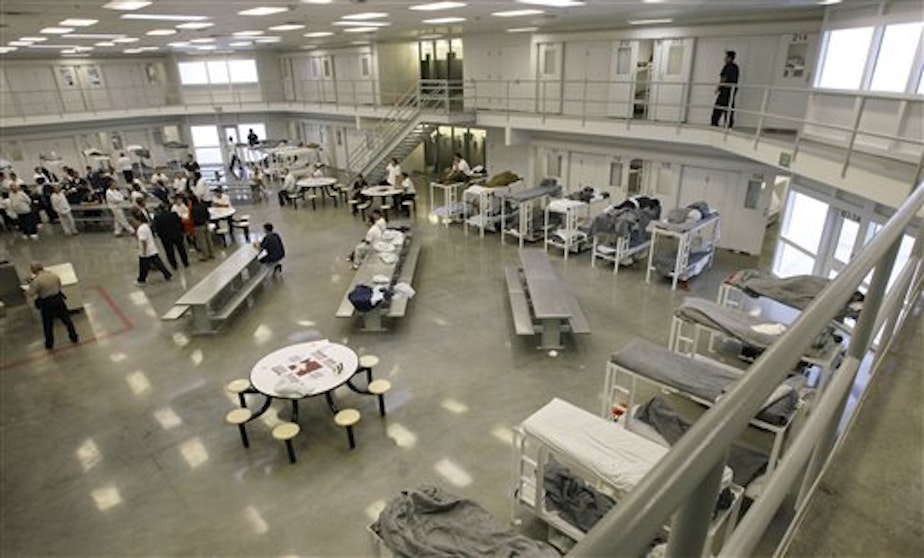Immigrants go on hunger strike at Tacoma detention center

Immigrants at the Northwest Detention Center in Tacoma are continuing a hunger strike, according to immigrant advocacy group Latino Advocacy.
Latino Advocacy director Maru Mora Villalpando said up to 200 people were participating in the hunger strike Monday.
A press release Tuesday says the number had risen to more than 400 detainees. The center holds about 1,500 people.
Among other things, detainees are calling for better food, higher pay for jobs at the detention center and expedited hearings, Mora Villalpando said.
And they’re doing it the only way they can.
Sponsored
"The only tool they have to fight back is their bodies and their health. And they're willing to risk their health and in many instances their own court cases to bring light to these abuses and the human rights violations that they're facing while in detention," said Mora Villalpando.
This isn't the first time detainees have gone on a hunger strike at the detention center in Tacoma.
Hundreds of immigrants refused meals in 2014, some of them for several weeks, because of similar concerns.
That spurred U.S. Congressman Adam Smith, representative for Tacoma and Bellevue, to introduce legislation aimed at improving conditions in detention centers across the nation.
The legislation has yet to be adopted, but Smith said Monday he plans to re-introduce the legislation towards the end of April.
Sponsored
He said we need to set legislative standards for detention centers, like we do for federal prisons.
“And there are so many people in there that could be out in the community awaiting determination of their final immigration status, so we really emphasize alternatives to detention in my legislation," Smith said.
Detainees are expected to continue the hunger strike at least through Thursday.
The Tacoma center is a U.S. immigration and Customs Enforcement (ICE) facility.
ICE spokeswoman Rose Richeson said they can't provide the number of detainees who have refused meals. But she said people will be subject to hunger strike protocols if they go without eating for 72 hours. Protocols include monitoring, counseling and possibly treatment.
Sponsored
In a statement, Richeson said:
“The current so-called hunger strike is more correctly termed a 'meal refusal' involving a number of detainees who have chosen not to eat meals provided by the cafeteria.”
